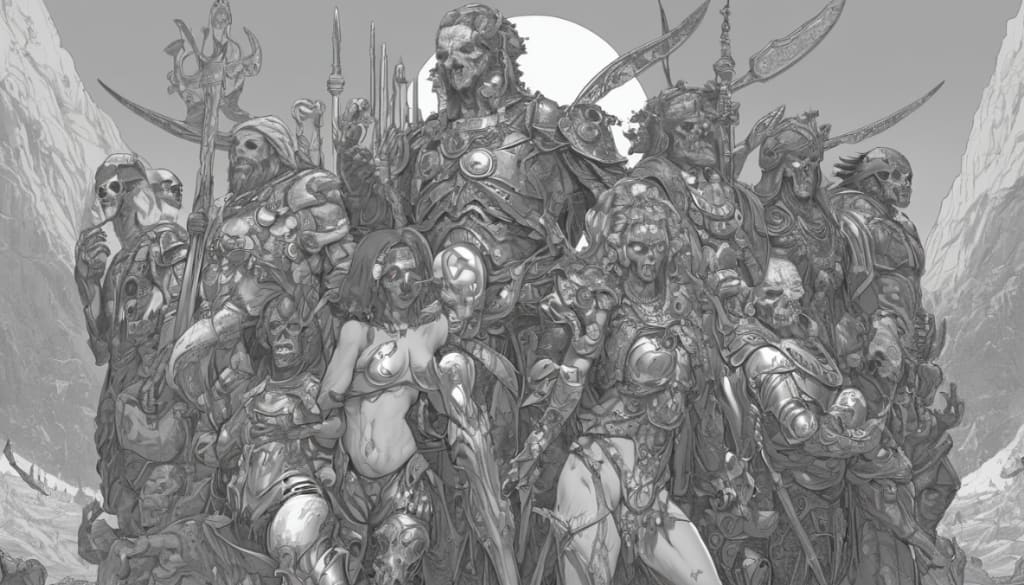
Cults, often shrouded in mystery and controversy, have captivated the human imagination for centuries. This article delves into the intricate world of cults, exploring their origins, psychological mechanisms, and the profound impact they can have on individuals and society at large.
1. Defining Cults: Beyond the Stereotypes
To comprehend the world of cults, we must first dispel common stereotypes. Contrary to popular belief, a cult is not solely characterized by strange rituals or charismatic leaders. Cults are defined by their manipulative tactics, control over members, and the creation of an isolated, alternate reality. This section unpacks the nuanced definition of cults and distinguishes them from other social or religious groups.
2. The Birth of Cults: Historical Perspectives
Cults are not a recent phenomenon; they have manifested throughout history in various forms. From religious sects in ancient civilizations to charismatic leaders in the 20th century, cults have evolved in response to societal changes. By examining historical examples, we gain insights into the recurring patterns and themes that define cult dynamics.
3. The Psychology of Cult Attraction: Understanding the Pull
The allure of cults is rooted in intricate psychological mechanisms that exploit fundamental human needs. Loneliness, a search for purpose, and a desire for community can make individuals susceptible to the charismatic appeal of cult leaders. This section explores the psychological vulnerabilities that make people susceptible to cult recruitment.
4. The Anatomy of a Cult: Key Characteristics
To identify and understand cults, it's essential to recognize their common characteristics. From a charismatic leader with absolute authority to thought control and manipulation techniques, this section breaks down the key elements that define a cult. By dissecting these features, we gain a comprehensive understanding of how cults operate.
5. Cults and Brainwashing: Manipulating the Mind
One of the defining features of cults is their ability to manipulate the minds of their members through a process often referred to as brainwashing. This section explores the psychological tactics cults employ to gain control over individuals, including isolation, sleep deprivation, and the manipulation of fear.
6. Escaping the Clutches: The Challenge of Leaving a Cult
Leaving a cult is a complex and challenging process. Cults employ tactics to discourage dissent and isolate members from their former lives, making escape a formidable task. This section delves into the psychological and emotional challenges faced by those who attempt to break free from the influence of a cult.
7. The Impact on Individuals: Psychological Consequences
The aftermath of cult involvement can leave lasting psychological scars on individuals. This section explores the impact of cults on mental health, examining issues such as post-cult trauma, identity crises, and the struggle to reintegrate into mainstream society. Understanding these consequences is crucial for providing support to former cult members.
8. Cults in the Digital Age: Online Manipulation
The advent of the internet has given rise to a new breed of cults operating in the digital realm. This section explores how online platforms provide fertile ground for recruitment, indoctrination, and the spread of extremist ideologies. The challenges posed by these virtual cults require a nuanced understanding of technology's role in modern cult dynamics.
9. Societal Implications: Cults and the Collective Psyche
Beyond the individual impact, cults can have profound societal implications. This section explores how cults can influence public opinion, politics, and cultural dynamics. From infamous historical examples to contemporary instances, the article examines the broader consequences of cults on the collective psyche.
10. Combating Cults: Education and Awareness
To mitigate the influence of cults, education and awareness are crucial. This section discusses strategies for prevention, including public awareness campaigns, educational programs, and support systems for individuals vulnerable to cult recruitment. By understanding the mechanisms of cults, society can work towards inoculating individuals against their manipulative tactics.
The world of cults is as fascinating as it is unsettling. By unraveling the complexities of their dynamics, psychology, and impact, we gain valuable insights into the darker corners of human behavior. As we navigate a world where information flows freely, understanding the mechanisms that drive cults becomes essential for fostering resilience, empathy, and a society that is vigilant against the allure of manipulative ideologies.
About the Creator
Kei Ben
A fresh read goes a long way.






Comments
Kei Ben is not accepting comments at the moment
Want to show your support? Send them a one-off tip.